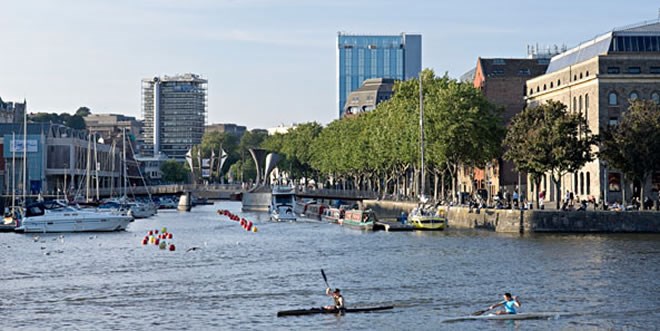
Monday January 30, 2017
By Esme Ashcroft

Bristol is the worst city for racial equality in the UK, a new report has found.
The shocking statistic forms the conclusion of a study which looked at the "ethical penalty" faced by BME populations across the UK.
Of the ten core cities in the country, the Centre on Dynamics of Ethnicity (CDE) and the race equality think tank, Runnymede Trust, found that Bristol's BME communities have poorer job prospects, worst health and fewest academic qualifications than those in white communities
Academics at CDE and Runnymede are now calling on central Government to create a national race equality action plan.
Centre on Dynamics of Ethnicity academic, Dr Nissa Finney, said: "The extent of ethnic inequalities is striking and it has not improved in the last 15 years.
"Ethnic minorities are disadvantaged in education, employment and housing across the country. This is despite many initiatives to reduce inequalities."There is some great work going on in local areas and we need more of this. But our evidence shows this issue is so marked, persistent and potentially divisive that it also needs concerted attention at a national level."
Bristol has a population of about 449,300 people, of which 16 per cent identify as members of BME communities.
According to the CDE and Runnymede Trust report, the city's wide racial inequality is seen in two main areas - health and education.
Its authors found that black African and Caribbean adults in Bristol are more likely to be unemployed compared to the national average, and that Somali children were over 25per cent less likely to achieve A* to C GCSE grades in English and Maths compared to the national average.
While Bristol's white population has the highest level of employment, Indian, Pakistanis and Bangladeshis in the city have a good level of employment prospects compared with similar communities across the UK.
The report also found that Bangladeshis and mixed white/black African children in Bristol achieved better GCSE grades in English and Maths than the city and national average.
Although ranked as the worst core city, Bristol was found to be the seventh most unequal local authority out of the 348 in the UK.
Four London boroughs, including Lambeth, Haringey, Tower Hamlets and Brent were ranked worse than Bristol.
Councillor Asher Craig, Bristol City Council's cabinet member for neighbourhoods, said: "Tackling inequality in Bristol has always been an issue close to my heart. It's one of the biggest if not the most important issue that faces our city.
"As this report highlights, there are significant issues to address in opening up access for BME communities to the labour market and finance, improving the life quality and expectancy of communities across the city and ensuring that children from BME backgrounds have the same opportunity to achieve academically as their white peers.
"Despite shrinking government financial support and greater pressure on services to do more with less we have forged ahead with a number of programmes to help address inequity in the city.
"These are just the first steps towards tackling inequality and are laying the foundations for more work with partner agencies, the voluntary sector and business in Bristol."
CDE and Runnymede is proposing that the Government to do more to tackle social racial inequality by working with Equalities and Human Rights Commission to create a national race equality plan.
Both organisations would like to see local councils make more of an effort to work with BME groups and to promote more projects to raise the aspirations of young people in BME communities.
The groups would also like employers to adopt action schemes to tack inequality and undertake more training around unconscious bias and the impact of white privilege.
Research analyst at Runnymede Trust, Farah Elahi, said: "Our research highlights the shocking extent of unequal and unfair outcomes for black African and Caribbean people in Britain today, which is particularly acute in the big cities and in 'inner London' boroughs.
"We looked at the factors that are driving this inequality and talked to local communities, and we found that there is an urgent need for changes to workplace culture and for positive action schemes."